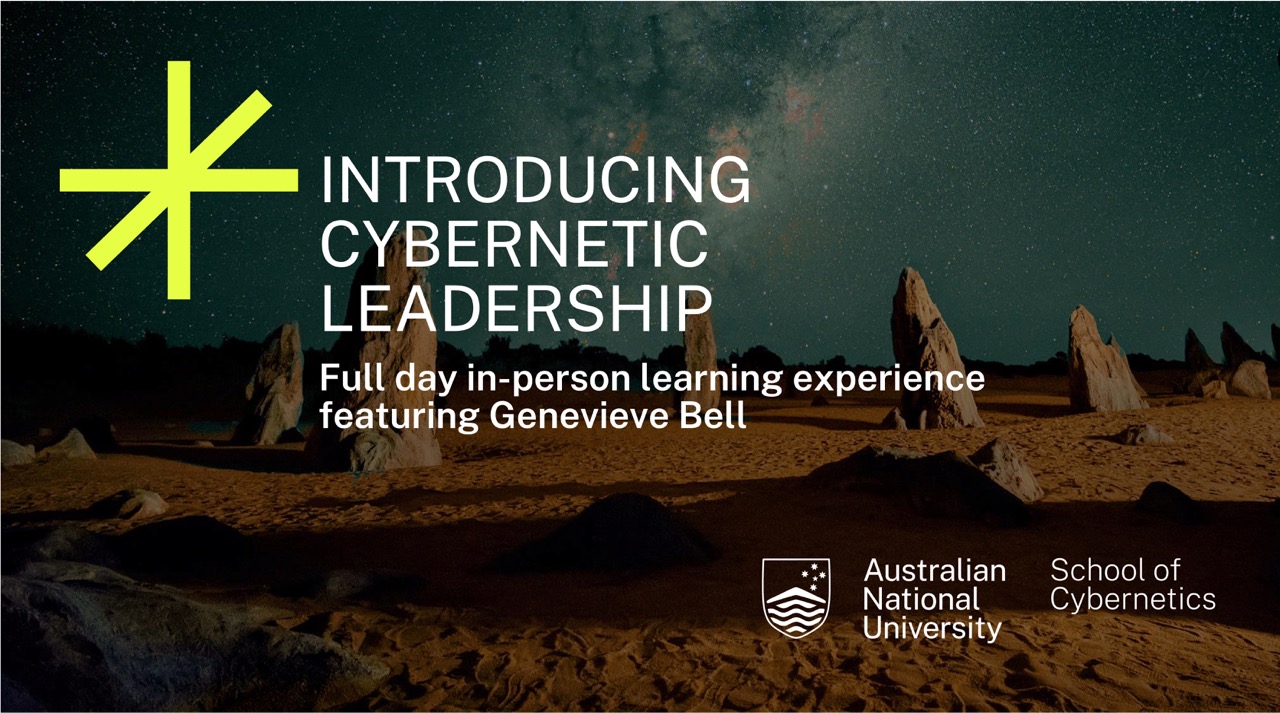The multiple cataclysmic events in recent years including natural disasters, a global pandemic, and devastating wars has caused huge disruption to existing structures.
There is a lot of anxiety about this emerging future, so how can we use leadership to steer towards not only surviving the future, but thriving in it?
Being a leader in today’s tech-driven environment can be tough. Emerging technologies such as AI and automation challenge decision-makers across all sectors to respond rapidly to complex and ambiguous situations, while managing the often-unknown risks and opportunities of adoption and deployment.
The School of Cybernetics has been researching the long-held assumptions of leadership, and the role cybernetics can play in refreshing leadership rhetoric.
This means more than looking at individual leaders, as it is imperative to consider the people they lead and the ways in which they can influence rather than control systems.
Powered by the Menzies Foundation, research by the School of Cybernetics has been harnessed to inform an introduction to cybernetic leadership learning experience.
“Emerging technologies can be intimidating, and it’s really easy to think that leading in this space is someone else’s job,” Cybernetic Engagements lead Maia Gould says.
“In reality, it is a job for us all.”
At the School of Cybernetics, we are helping equip Australia’s current and emerging leaders to navigate the fast, smart and interconnected world that is constantly evolving.
We sought to understand what questions about leadership many are grappling with now, and what will be the dominant concerns of the future. This includes:
- What skills will be effective for leading change in these complex and algorithmically mediated environments?
- Will those who lead change be those in traditional positions of leadership?
- How can cybernetics help change and renew leadership rhetoric?
“We need leaders that can critically engage with new technology, and then to lead change within their organisation,” Gould says.
As part of the full-day learning experience, participants will develop the skills they need to navigate the complexity that comes with emerging technologies.
“There is no way to predict everything we will encounter in the future, but we can give people the skills to lead through increasing complexity with innovative ideas,” Gould says.
“We need to look beyond individual leaders to lead change in the 21st century. Instead, we need to create the conditions for leadership throughout organisations, not just in senior positions.”
In a world that is so complex, thinking in systems allows the bigger picture envisioned. This idea is cornerstone to cybernetics, and will be vital for all leaders in the future.
Learn more about Introducing Cybernetic Leadership and our other learning experiences on our Education page.

